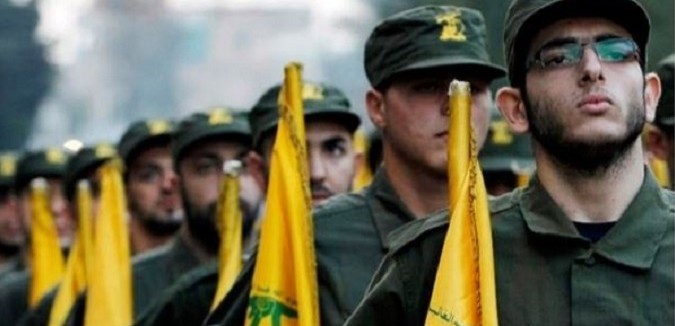The international community must use diplomatic and economic efforts to confront Hezbollah before it instigates another conflict with Israel, one that is likely to be much worse than the 2006 Lebanon War, a retired Israeli general said Monday.
“Nowadays, with effective diplomatic and economic means, you can reach a point that … the chances and the potential destruction of this kind of escalation [with Israel] would be far less than it is currently,” Brig. Gen. (ret.) Yakov Shaharabani said while speaking on a panel hosted by the Foundation for Defense of Democracies (FDD) about the potential of another war ensuing between Israel and the Iran-backed terrorist group. Shaharabani warned that if the current trend line continues without interruption, the next conflict between Hezbollah and Israel “might be very destructive.”
The international community currently has the chance to “impact Hezbollah while it is quietly weakened by its involvement in Syria,” he observed.
Asked about ways the United States could help mitigate the risk of a major conflict breaking out, Shaharabani’s co-panelist Jonathan Schanzer, FDD’s vice president for research, said that Congress can ensure that Israel’s defense systems are bolstered. Limiting Hezbollah’s ability to inflict major damage on Israel will help lessen the severity of Jerusalem’s response, he explained.
When you look at the lessons of the Gaza War of 2014, whatever you say about the way that it ended or the way that it was not resolved, the key to preventing a much more bloody conflict was missile defense for the Israelis. I don’t know exactly how much Israel has or how much Israel needs in order to counter 150,000 rockets from Lebanon, reports are that it can be roughly 1,000 or more a day during that conflict. If those rockets hit northern Israel, if they hit deeper into Israel, that will precipitate a ground conflict, there is almost no doubt about that. So the key here is to ensure that Israel remains safe through missile defense, through those countermeasures. If it’s not able to do so, then we have a real problem. So I think that in terms of what Congress can do, it’s just essentially to make sure that Israel is prepared for this from a defense perspective. That might prevent the war that we don’t want to see.
Shaharabani agreed with Schanzer’s assessment, adding that current Israeli missile defense systems like Iron Dome and David’s Sling are “a strategic game changer” that give the Israeli government more time to consider a wider range of retaliatory options.
In a recently released FDD report, Schanzer and co-authors Tony Badran and David Daoud noted that in the event of a conflict, Israel may need increased funds for interceptors for missile defense systems, as well as for “tunnel detection and destruction technology. Israel will almost certainly need to replenish the prepositioned U.S. military stocks based in [the] country, too. The defense of energy infrastructure, both on the ground and at sea, will also be a major concern.”
They also recommended that the U.S. should take steps to clamp down on Hezbollah’s global fundraising network to supplement new measures recently imposed on the group by Congress. Schanzer noted that the new set of sanctions already exacerbated Hezbollah’s financial woes, even though the terrorist group still enjoys the support of Iran, which has been significantly enriched by last year’s nuclear deal. (Hezbollah chief Hassan Nasrallah recently affirmed that “as long as Iran has money, we have money.”)
The report’s authors further called on the U.S. to reexamine its policy to empower Iran in Syria; enact targeted sanctions against Iran for arming Hezbollah in defiance of UN Security Council resolution 1701, which called for the dismantlement of all militias operating in Lebanon; predicate assistance to the Lebanese government and armed forces on their “divorce” from Hezbollah; request a report by the U.S. military on the legality of targeting Hezbollah’s underground tunnel network, which snakes through residential areas; and in the event of a conflict, ward off Russian intervention (which could lead to an outcome that empowers Moscow) and refrain from pressuring Israel to implement a ceasefire before it completes its strategic objectives.
Achieving a “significant outcome” using “diplomatic means in time of war will be very difficult,” Shaharabani noted toward the end of the FDD panel. “Now, we have time.”
[Photo: YouTube ]




